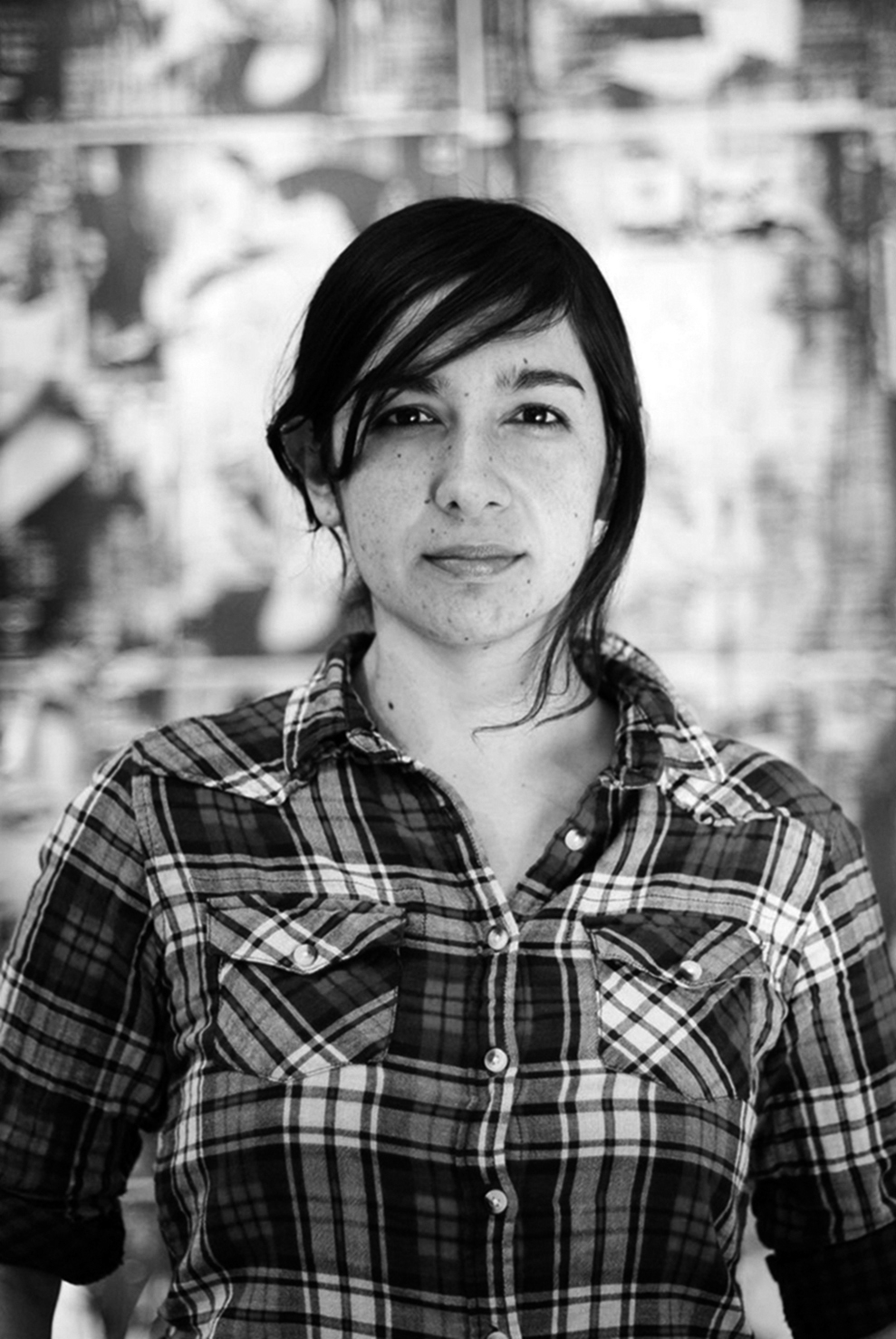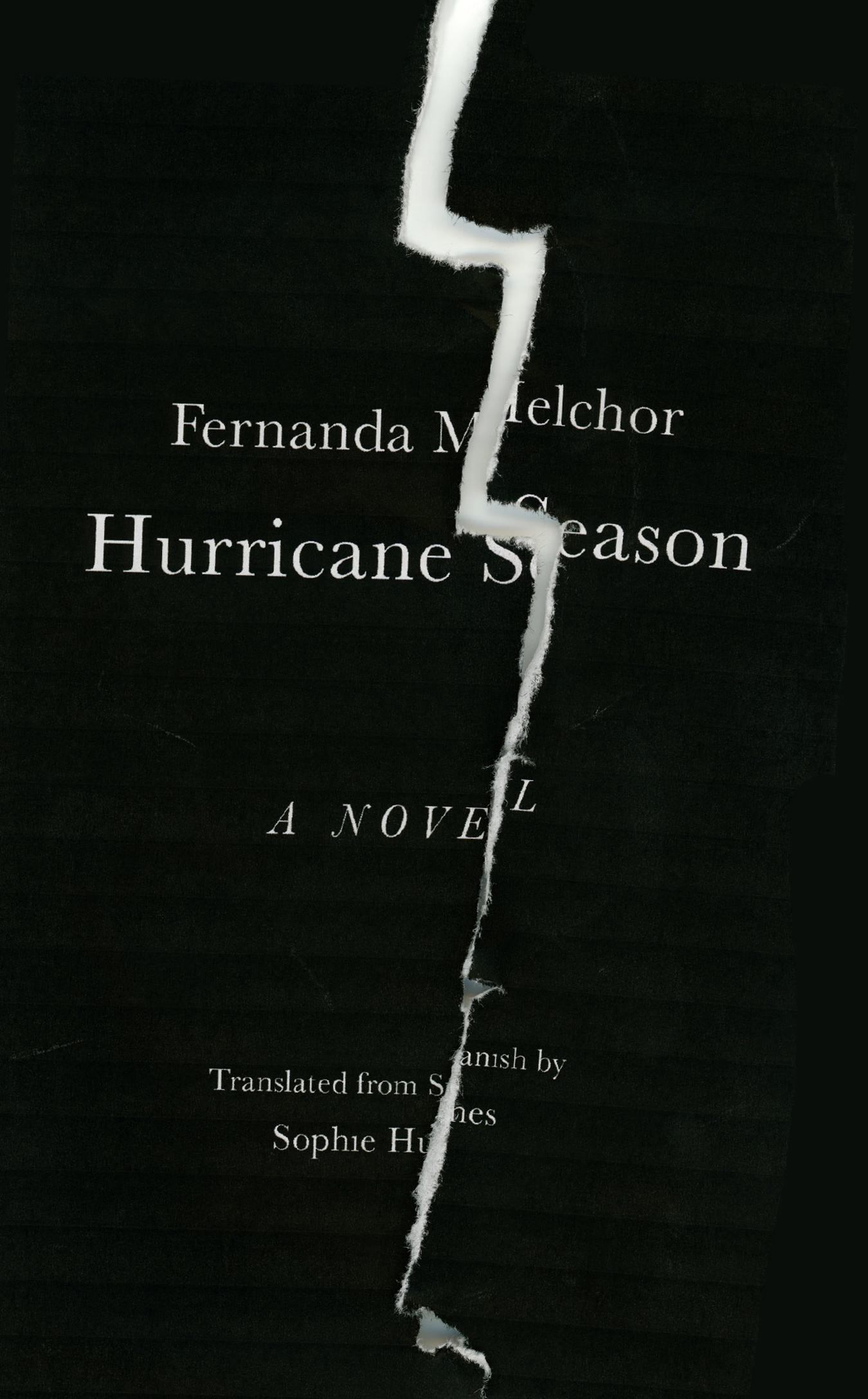La Realidad Méxicana: An Interview with Fernanda Melchor
Interviews
By Sophie Hughes
Fernanda Melchor’s novel Hurricane Season is a difficult but not demanding read. What do I mean? As the novel’s English translator, I know only too well that it tells stories we don’t want to hear; unbearable stories of abuse and neglect that take place in Mexico in the novel, but all over the world in real life. But Hurricane Season is a novel, which means, first and foremost, it tenders a reading experience, and as reading experiences go, I find it hard to think of one in recent years that I have found as absorbing, as compelling, as thrilling. Hurricane Season rips along on a tide of real speech, real human instincts, real violence, real feeling. It hosts a cast of lost and destitute characters who, for lack of other means, articulate that loss and destitution by obeying their impulses. Five different perspectives gather in free indirect speech and have the cumulative effect of transporting the reader to the sultry Veracruz village of La Matosa. Hurricane Season is not demanding to read because it is a page-turner in the best possible sense: authentic, compulsive, and vivid, from the very first page, when the village witch doctor is found floating belly up in a canal by a group of local kids. Poor Witch, poor crank—let’s just hope they catch the fucker or fuckers who slit her throat.

SOPHIE HUGHES: The British novelist Jon McGregor has described Hurricane Season as “storytelling as reportage.” I read that the origins of the book are in a real-life case: an unusual rural murder that you read about in the local press. You initially intended to write something in the line of In Cold Blood by Truman Capote, going to the place where the body was found and interviewing people there. What stopped you, and what vestiges of that initial intention remain in the novel as it stands?
FERNANDA MELCHOR: What stopped me was that it was really dangerous to visit that zone of Veracruz when I decided I wanted to write that story, around 2014–2015. The original crime took place in Ciudad Cardel, a small town near the port of Veracruz, and that place was creeping with Zetas and other cartel members because it was a strategic spot, so nobody could come in or out without being noticed by these bad guys, and certainly not a woman asking intrusive questions about a murder. At that time I lived in Puebla, and I was also struggling to further my career as a writer while working on my master’s degree in Aesthetics and raising my eight-year-old stepdaughter, and I didn’t have any credentials as a reporter and no money to finance the research, but mostly I was afraid to run into the wrong kind of people. It really was a scary moment in the history of Veracruz, all those women and men and children getting killed or going missing, all those people who end up in the recently discovered mass graves in that very same area that I wanted to investigate. I didn’t want to make my kid an orphan, so I decided it was best to stay in Puebla and write the story from the distance of fiction, since I was no Truman Capote anyway, and there was no guarantee that interviewing the real criminals could actually help me to truly understand why they killed their victim. So I thought I could investigate those deepest motives through fiction. What’s left from that intention was the way I created the novel, a bit like a literary detective: all I knew was somebody was killed and somebody else had done it, and I just imagined the rest of the story all the way up to the beginning.
SH: Hurricane Season presents itself as a crime thriller—it opens with a gang of young kids coming across the rotting corpse of the woman known locally as the Witch, floating in one of the local irrigation canals in Veracruz’s vast sugarcane region—only for you to then frustrate thriller plot convention. Do you read crime fiction?
FM: The first books I bought with my own pocket money when I was twelve years old or so were The Silence of the Lambs and The Perfume, so yes, I’ve always been obsessed with murder stories, especially those centered in the figure of the offender, the mad, the fallen. Classic detective stories like Conan Doyle’s or Agatha Christie’s never were my cup of tea—I’m more an American true crime buff, although it’s always hard to find really good literary accounts of true crime that are at the level of In Cold Blood or Rodolfo Walsh’s Operation Massacre.
SH: As a speaker and writer and reader of English, you’re also an occasional literary translator from English to Spanish. What’s it like being translated into a language you know so well?
FM: I loved the experience of reading Hurricane Season in English, not only because the translation is outstanding, but also because it’s the first time I’ve been able to read one of my books as something completely detached from me, and it’s disturbing and amusing at the same time. I can also read and speak French fluently, but my relationship with this language is not that intimate, and I didn’t get the chance to work with my French translator, Laura Alcoba, as closely as I worked with you.
SH: The free indirect style used throughout Hurricane Season allows us to inhabit a large cast of diverse characters, even though each chapter ostensibly follows just one. In some cases a new character appears unannounced mid-sentence to take over another’s narrative, as when an authoritative voice speaking legalese interrupts the somewhat artless and relaxed testimony of the oafish Munra mid-sentence, before switching, again without warning, back to Munra. (This is one of many narratorial leaps in Hurricane Season that make it feel, exhilaratingly, like the novel itself is a living thing.) Your narrative verve makes for gripping reading, but it also demands the undivided attention of the reader. Was it important to you to strike a balance between compulsive readability and stylistic novelty?
FM: Yes, I wanted the book to have real depth without compromising readability. I’ve always envied the apparent ease of the most commercial page-turners, how it’s possible to read them quickly without having to go back again and again to clarify an obscure passage, as sometimes does happen with more ambitious literary prose. For me it’s always a struggle to find the best way to tell a story; if the form is too simple, it bores me. If it’s too twisted, I worry the reader will throw away the book after a couple of sentences, so yes, finding balance is always a challenge. I remember when I was a kid in high school writing my first stories, I used to think that inscrutability was the mark of a great writer, that the point was to make the reader think, “What the hell did I just read?” and make her go over the text again to understand, which was a very stupid and pretentious idea I’d probable got by misreading Faulkner. Now I’m more interested in finding ways of telling that can be both amusing for me and intriguing for the reader.
SH: Mexico’s influential literary journal Letras Libres published a review of your novel simply titled “At last,” which argued that this kind of uncompromising portrayal of “the unbearable national tragedy” was long overdue. What do you think is different about Hurricane Season compared with other fictional representations of contemporary narco-capitalist Mexico?
FM: I think Antonio Ortuño, the reviewer, was making reference to narco-literature, this subgenre that explores the so-called realities of the drug-dealing culture, especially those from the North of Mexico, through fiction or a combination of investigative journalism and true crime writing, a really popular trend in Mexico still. I was never a fan of this genre, but I understood why it became so widespread: in the face of increased violence, people searched desperately to understand what was going on, and this kind of real-facts literature did the work for a while, though most of it also contributed to mythologizing the drug lords as rogue, renegade heroes instead of criminals, or unwittingly reproduced violent prejudices against women, homosexuals, or impoverished people. Boring stuff, you know? Mostly because of the way they treated their subject, and the poverty of the language employed, and their total lack of narrative imagination. I always thought there were better, more creative ways to write about the violence I witnessed as a citizen of Mexico and Veracruz, and I found that not talking about narcos and sicarios directly, but of the conditions in which they emerge, or the way their presence is normalized, or how this situation is perceived by people from the southeast of Mexico (generally underrepresented in Mexican literature) could also help illustrate this reality. This was my intention when I wrote not only Hurricane Season but my other novel, Falsa Liebre, and a collection of short nonfiction pieces, Aquí no es Miami (forthcoming from New Directions and Fitzcarraldo Editions): to find “risqué” forms and types of language to talk about what everyone needs to talk about.
SH: Hurricane Season has been a literary sensation in Mexico, where you have been widely praised for portraying “la realidad méxicana” (“Mexican reality”). Is there such a thing as “la realidad méxicana”?
FM: I think it’s impossible to speak of one unique reality in Mexico. The social inequality gap is so wide that one is tempted to admit there are several very different Mexicos within the same territory. But it is true that violence could be the common experience of the average Mexican, and I am not just talking about the spectacular forms of violence, like shootings or femicides or beheadings, but of more pervasive and insidious forms of violence, like discrimination, classism, injustice, and impunity. So yes, in a way we can say Hurricane Season portrays some of these violent experiences of being Mexican nowadays, and it does so through a coarse language that mimics the way people speak, but at the same time I really think it’s impossible to establish a direct link between history and literature, or between reality or literature, because the writer’s task is to create something different out of reality, to disguise and betray and divert this political or ideological material and transform it into something else: a fiction, something that is neither true nor false. Another kind of reality, as Piglia used to say.
Sophie Hughes has translated Spanish and Latin American authors such as José Revueltas, Enrique Vila-Matas, and Alia Trabucco Zerán. Her translation of Fernanda Melchor’s Hurricane Season is currently longlisted for the 2020 International Booker Prize.
More Interviews



